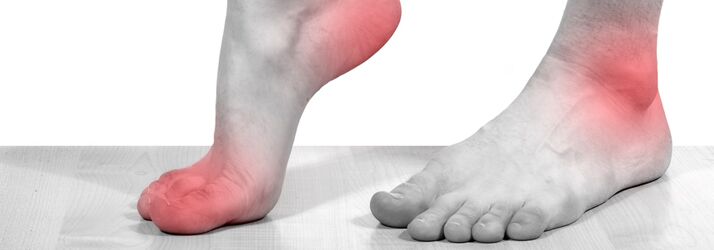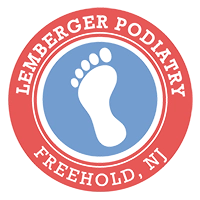Dealing with Neuromas in Freehold NJ?

Neuromas happen when nerve tissue growth becomes thick and bundled. They’re sometimes called pinched nerves or even referred to as “nerve tumors”, though they are benign and not tumors. What’s happened is that the thickening of nerve tissue has created a painful spot along an irritated nerve. When the nerve became irritated or compressed, a nerve defect occurred. In the feet, Freehold NJ Podiatrists most commonly observe Morton’s neuroma. This one tends to happen between the third and fourth toe.
The Symptoms of a Neuroma In the Foot
The most common symptom is pain. This will happen between the third and fourth toe, at the spot where the neuroma is, or spread out into the ball of the foot and the toes. It’s also likely to cause a burning sensation, tingling like when your foot falls asleep, or numbness. Any kind of high-impact sport that puts a lot of pressure on the foot will make your symptoms worse.
What Are Nerves?
Your nerves are like cords sending messages throughout your body. When you touch something with your toe, your nerve sends all the sensations you feel back to your brain. In turn, your brain sends messages to your body through your nerves.
So when you bend your toe, your brain sends a message along your nerves to help trigger all of your muscles to make that action happen. When you touch something with your toe, the nerve sends messages back to your brain to let you know that the surface was hot or cold, or whether it was smooth or rough, or whether you felt any pain.
When an area feels numb or regularly in pain, this is happening because of damage to the nerve.
What Causes Morton’s Neuroma in Freehold NJ?
There is not one single cause that we know of that leads to neuromas. Rather, these happen due to a variety of possible contributing factors. Most commonly, you’ll see this happen after you have a history of repetitive stress on the foot from sports, an injury to the foot, or a pre-existing condition. For example, hammertoes, flat arches, and bunions can all be contributors that lead to Morton’s neuroma. It is also very common to see neuromas happen after a long history of wearing tight or high-heeled shoes. This footwear forces the feet into unnatural positions and causes problems in the feet, like neuromas and hammertoes.
Creating a Treatment Plan For Neuromas
If you ever feel a pain in your feet that lasts more than three days, your best plan is to visit your Freehold NJ podiatrist. Our team at Lemberger Podiatry to diagnose the problem and then create a treatment plan. Your plan for your neuroma will be individualized to what your symptoms are, how long they’ve been going on, and how best you can move forward.
Most often, your treatment plan will include recommendations for new shoes and orthotics. You can get special pads that will help relieve pressure on the feet. You may need to rest your feet more depending on what your current lifestyle is like. Your podiatrist may also recommend medications.
All of these measures are to help treat the neuroma in the early stages and hopefully avoid surgery, which may be needed in extreme cases.
OFFICE HOURS
Monday
9:00am - 5:00pm
Tuesday
9:00am - 5:00pm
Wednesday
9:00am - 5:00pm
Thursday
9:00am - 5:00pm
Friday
9:00am - 4:00pm
Saturday & Sunday
Closed
Lemberger Podiatry
505 Stillwells Corner Rd., Building C
Freehold, NJ 07728




